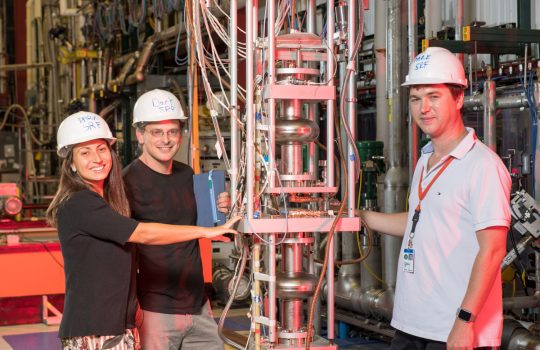Department of Energy selects Argonne, Fermilab to lead two multimillion-dollar national quantum research centers
- Argonne
- Argonne National Laboratory
- Department of Energy
- DOE
- quantum computing
- quantum information science
- quantum science
- quantum sensor
- SQMS Center
- University of Chicago
From University of Chicago, Aug. 26, 2020: The Department of Energy is establishing five new National Quantum Information Science Research Centers, including a center led by Argonne and a center led by Fermilab, which are each projected to receive $115 million in funding over the next five years. The Fermilab-led center, called the Superconducting Quantum Materials and Systems Center, aims to build and deploy a beyond-state-of-the-art quantum computer based on superconducting technologies. The center also will develop new quantum sensors, which could lead to the discovery of the nature of dark matter and other elusive subatomic particles.


